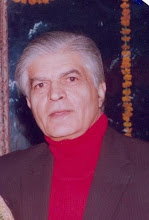
Digestive System Part Ia
The grinder, liquidizer, chemical splitter and soak-up chamber
INTRODUCTION All in a nut shell
All of us need to eat. Every cell in our body including nerve cells, muscle, bone cells or cells of an
Organ require energy to work.
The energy source for us is food that we eat.
This food is not in the form that the body can use to produce energy.
The digestive system converts food to useable form i.e., the small simpler molecules that can be absorbed and passed on to the cells through the blood.
Plants and animal cellular tissues are items that are food for us.
These items of food (after cooking) need to be broken down by our digestive system.
Our teeth break the food into smaller bits, and after that the enzymes, in our digestive system split the food into smaller chemical units.
The result of digestion is the production of simple units that can be absorbed by the intestines and used by our body cells.
These units are glucose from carbohydrates, amino-acid from protein and triglycerides from fats.
These energy units are used by the body for:
- Converting into heat to maintain body warmth
- Muscles contraction uses energy,
- Production of enzymes for building and repair
- Excretion of waste material also requires energy.
Energy units can also be stored (banked) for future use after the other body needs have been met.
The digestive events start with the sight and smell and taste of food.
The salivary glands produce saliva (your mouth waters).
Juices are also produced in the stomach, on seeing and tasting of food, all these secretions contain enzymes.
These entire chemical splitying events, occur in the hollow digestion tubes, with the help juices of the alimentary canal, and those juices provided by the liver, and pancreas, also take part in this effort.
Any questions be sent to drmmkapur@gmail.com
All earlier posts are stored n archives for access and review
Visitors that follow the site may post contributions on the site.
Click on image to see details.





No comments:
Post a Comment